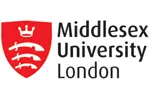About Early Childhood Studies BA, BA (Hons) - at Middlesex University
Overview
Understand how education shapes the development of younger children with our BA in Early Childhood Studies.
We know that as someone holding an offer with us at Middlesex, you’re probably wondering about our plans for teaching and learning in the autumn. We’re delighted to tell you that our Education Studies and Early Childhood Studies Programmes are running this September and we’re putting everything in place so you can make a successful start to your studies. For your first term, we're planning to teach you through a mix of online or virtual and face to face methods. This means we can keep everyone safe until we are able to return to the campus.
Why study early childhood studies with us
Our course has been specifically designed to make young children the focus. We think it’s important to understand how an increasingly global world impacts early childhood development and education. That’s why on this course you'll gain knowledge from interconnected disciplines including sociology, psychology, law, health, and management. Our highly experienced tutors will help you to learn, understand, and apply the material from this course. A BA in Early Childhood Studies can lead to a career in education, childhood development, children’s charities, and many more. Graduates have found careers as teaching assistants, child development officers and more.
We’re proud to be in the top 250 in the world for Education (Times Higher Education World University Rankings 2019).
Gain hands-on practical skills with us
One of the most important aspects of completing your early childhood studies is gaining usable and transferable skills. That’s why our course ensures you learn and participate actively in the interpretation, evaluation, and application of knowledge through engagement in individual, group, and e-learning activities.
You'll be assessed on a mixture of essays, presentations, reports, and a dissertation that showcases your personal interests and research, as well as the opportunity to take part in work experience in an early education or other relevant educational setting. A work placement allows you to get the hands-on experience you need, as well as building that network of contacts that will help you in your career. You’ll also receive help in identifying the best career route or postgraduate programme for your future.

